Bill Frisell is on the hunt for the next musical epiphany
The esteemed guitarist on being himself, letting go of theory, and why he’s happy to blur the genre lines.

Image: John Lamparski / Getty Images
Bill Frisell might well be one of the most-recorded guitarists of his generation. Possessing one of the most recognisably bell-like tones you’ll ever hear, he’s been lauded as among the most versatile players in jazz history. With the guitarist soon to hit the road following the recent release of his latest album Epistrophy, it’s a welcome opportunity to chat to one of the most sought-after musicians in the world.
As befits a man in such high demand, however, the man himself might have only released a new record last month, but he’s already on to the next thing.
“I have a new album that I just finished called Harmony,” he enthuses. “It��’s a group with Petra Haden singing. Hank Roberts plays cello, Luke Bergman plays baritone [guitar], bass and guitar. It was a thrown-together situation at a festival a few years ago in San Francisco. We hadn’t played together before, y’know with cello and baritone guitar.”
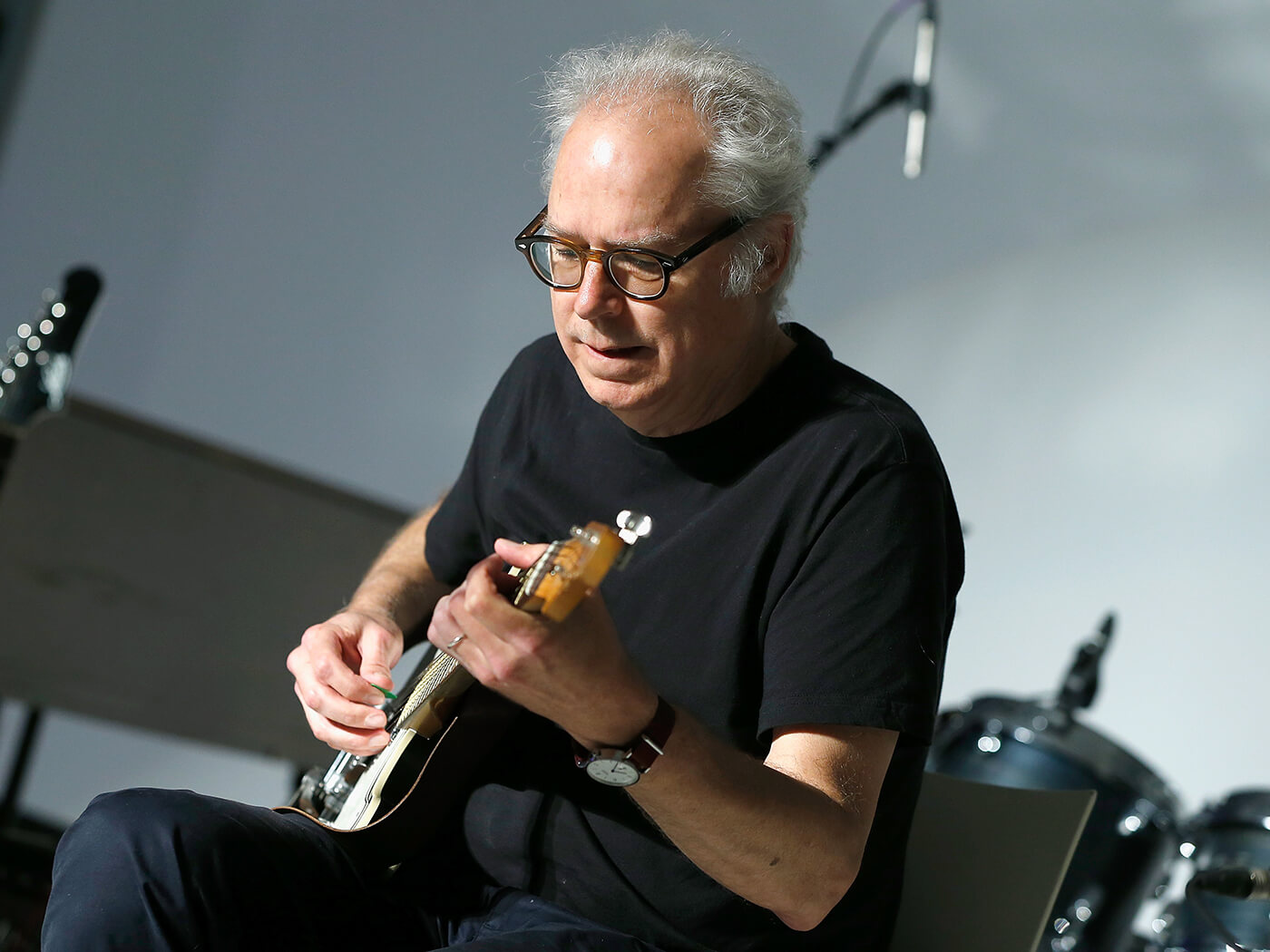
Despite the haphazard nature of the band’s formation, Bill was quick to pounce on the abilities of his newly acquired bandmates. “At the last minute, I realised Hank and Luke could sing, so we ended up having anyone but me singing [laughs]. It was like a revelation! For me, texturally, it’s a different group sound. I really get to push up against those voices with my guitar.”
If it seems like there’s no stopping him, well, this shouldn’t be a shock – this is a man who has racked up hundreds of credits as a sideman and session player on a vast array of genres and labels, ranging from solo-guitar works such as Music IS to loving homages to film composition.
Alongside these, he’s also worked in dozens of ensembles, including stellar live dates alongside upright-bass player Thomas Morgan. The pair have so far recorded two albums in the form of Small Town and the aforementioned Epistrophy, which marked his return to the ECM label, where Frisell was the in-house guitar player before the release of his first solo album, In Line, in 1983.
Master of all
You don’t feature on the number of records and soundtracks that Bill has appeared on without being a true student of the instrument. But despite his work encompassing everything from country and folk to jazz and Americana, he’s always careful to remain true to himself and his guitar-playing style.
“That’s the thing. I don’t change what I do at all,” he explains. “I’m not thinking about the name of what it is while I’m playing. I know we need to describe music, but when you try to pin it down you always come up short. When I’m in the midst of playing, the farthest thing from my mind is what the genre is. I’m using my same instincts throughout.”
This becomes more apparent when realising the consistency of Bill’s tone and approach, whether he’s playing a Telecaster or a parlour guitar. When we talk, he’s preparing for a show with Morgan and saxophonist Greg Tardy, following his show with the Grammy-winning Lucinda Williams the previous night.
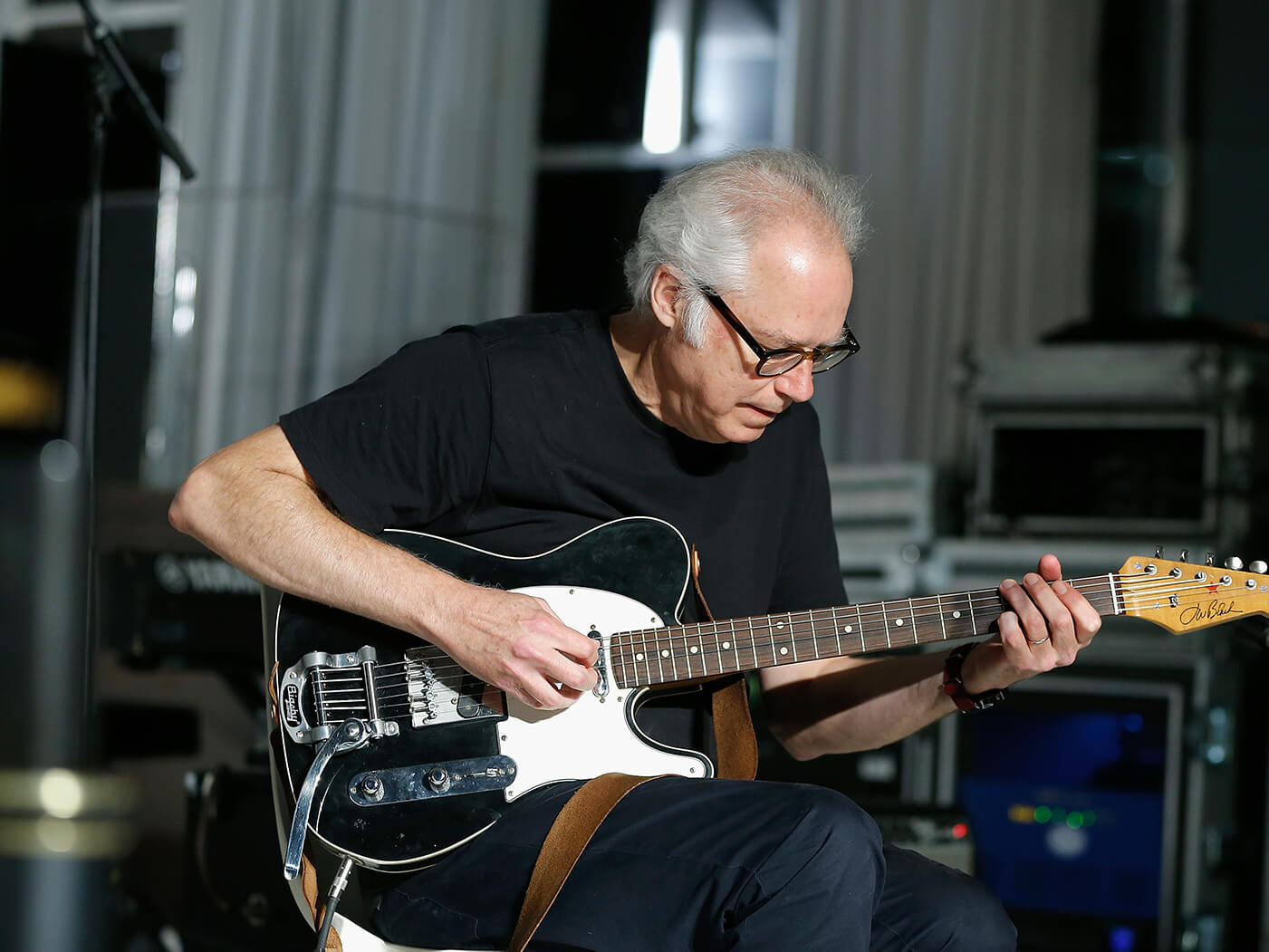
“I drop myself into all of these situations, maybe the surroundings change but what I’m doing doesn’t. I’m just trying to play the right thing. That’s what’s amazing, there’s no reason why you can’t hear Robert Johnson with a Korsakov orchestration behind him!”
Bill’s consistent approach is admirable, and while his Berklee education is a thing that most players can only dream of, he still hopes that it’s possible to let go of that immense knowledge of theory and harmony when needed.
“I went to school and had all these teachers, studied books et cetera, sometimes that stuff gets in the way,” he concedes. “I want to learn as much as I can and use everything at my disposal, but for me, it’s much better if the music is coming from deeper down where you get to this place where you’re not thinking about it.”
Jazz hands
As one of the finest session musicians of his generation, it’s no surprise that Bill has worked with everyone from Paul Simon and Ginger Baker to Elvis Costello and even the BBC Symphony Orchestra, but he’s reluctant to pick out a standout moment.
“That’s a hard one, as there’s been so many!” he exclaims. “I really feel like I’ve won the lottery with all the people I’ve gotten to play with. Every single person I’ve played with I learned something from.”
Instead, Bill prefers to talk about the influencers, colleagues and friends who have shaped him as a guitar player over the course of his career.
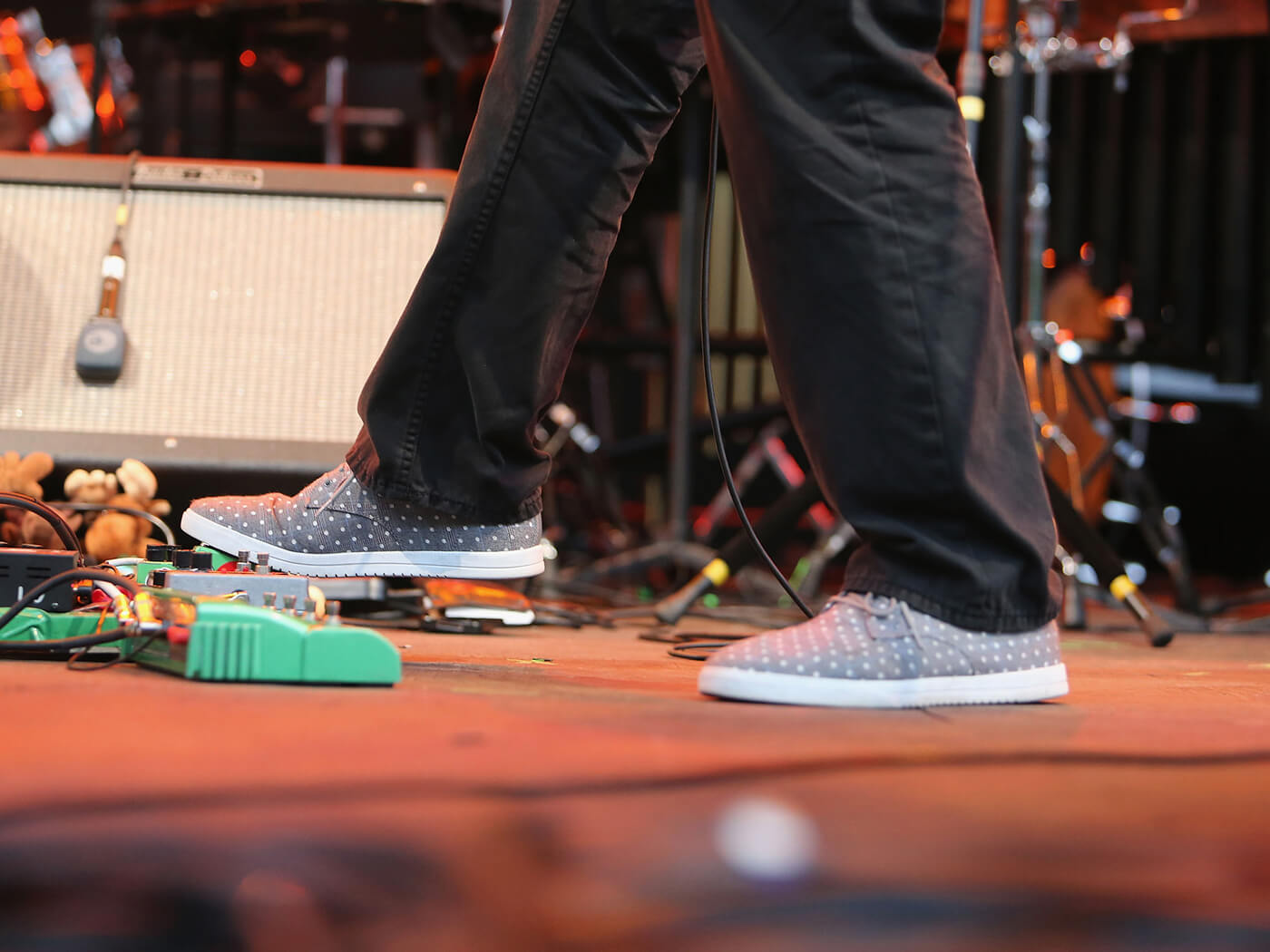
“One of the longest and most intense relationships I’ve had is with Paul Motian, the drummer,” Bill explains. “I met him in 1981 and I first heard him years before that playing with Charles Lloyd when I was in high school, and now I’m playing with Charles Lloyd! Also my teacher in Denver, Dale Bruning. I can’t imagine where I’d be without him. He first introduced me to Jim Hall’s music and then introduced me to Jim Hall.”
While Bill never got to work with John Lennon, the Beatle’s impact on him has been profound, and was something that Frisell explored on the 2011 album All We Are Saying…. On the album, Bill pulled in the likes of violinist Jenny Scheinman and guitarist Greg Leisz to help him reimagine classics such as Imagine and Come Together, showing that even after all this time, the Fab Four’s music can still reveal new textures and details.
“One thing about getting older is having accumulated experience everyday, you’re still learning and listening,” he reflects. “With so much music, Beethoven, Bach, Charlie Parker et cetera, coming back to it after a few years, I’ll hear a song I thought I knew and realise there’s stuff I never noticed the first time.
“With them [The Beatles], there’s layers and layers that keep revealing themselves. It’s deep y’know? You think it’s just a pop song, but there’s so much more to it. It’s taken for granted because we’ve heard it so much.”
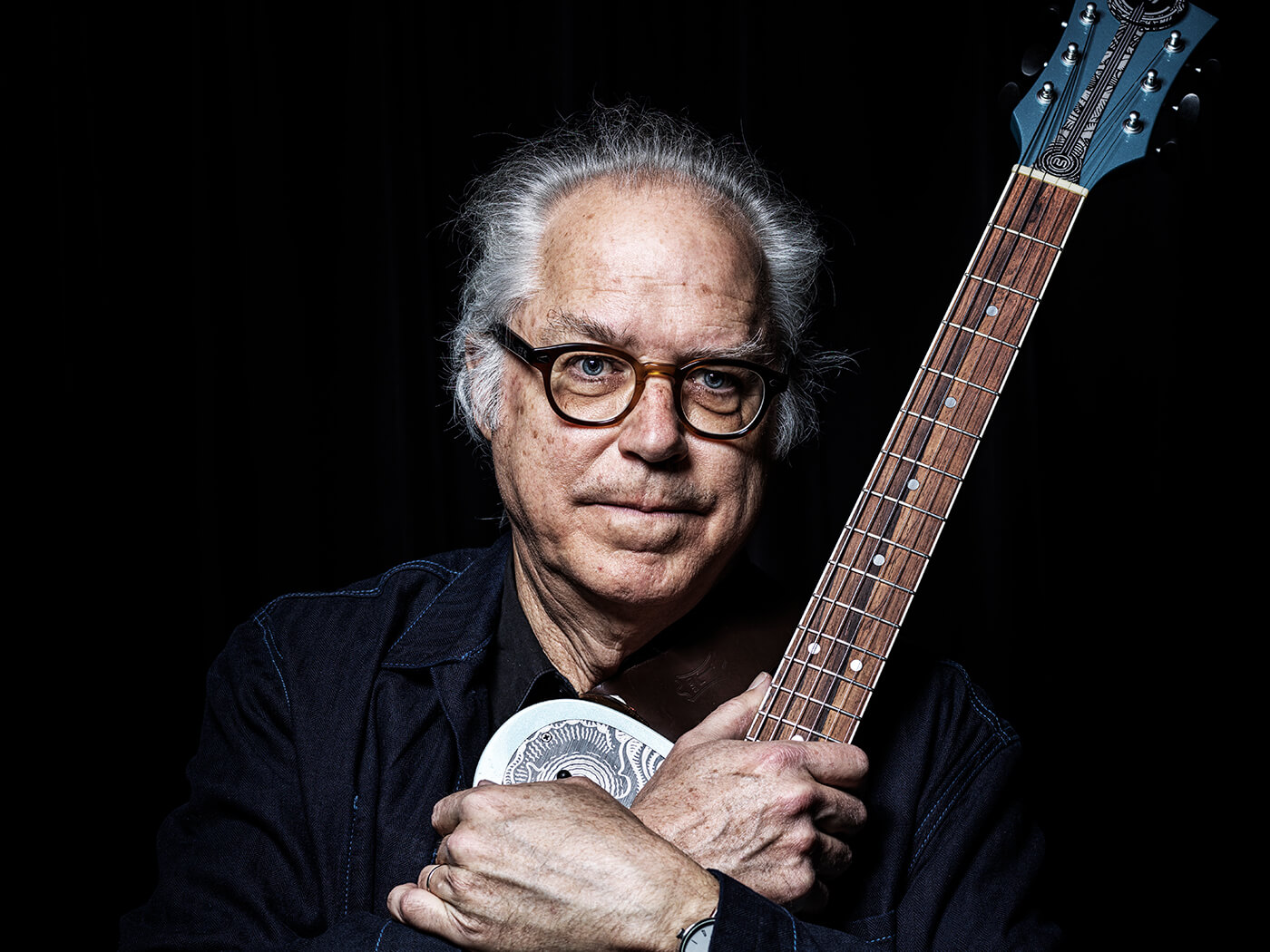
Guitar mastery
Bill has a reputation as one of the biggest gearheads in jazz, but despite his genre-hopping sensibilities, he doesn’t feel the need to depend on an esoteric or revolving list of pedals to get the job done.
“It’s basically the same stuff as always,” he affirms. “I have a Tube Screamer usually and then something more extreme, like a mini EHX Muff. I’ve been using the [EHX] Freeze pedal too, which just holds whatever you play into it. Then my Line 6 DL4 too, for loops, plus a Strymon Flint.”
His guitar choices remain eccentric, though, and he’s been known to use modified Telecasters, notably a short-scale model featuring a TK Smith neck pickup, plus a custom-painted Jazzmaster with mini-humbuckers (painted by artist Terry Turrell), alongside other Fender offsets, Collings guitars and even a Gibson ES-175.
Despite these dalliances, he still remains a Telecaster loyalist at his core, although he has been messing around with a new offering from the mind behind the Mastery bridge.
“I got a new guitar from John Woodland who designed the Mastery Bridges,” he affirms. “Right now, though, my main guitar has Jeff Callahan pickups in it, but I’m always switching things around.”
Film star
As befits someone with such broad tastes, Bill refuses to work within the confines of contemporary music, and instead looks for inspiration from outside sources as well.
The importance of visual arts is evident in his work; his wife is an artist, as are friends Jim Woodring and the aforementioned Terry Turrell, evident through his use of experimental techniques and manipulation of the guitar neck.
If that wasn’t enough, he also lends his hand to film composition, most notably working alongside Buster Keaton’s silent films The High Sign and One Week. “I love to just sit around and try to write music, let my mind go free,” he enthuses. “I haven’t done much film, but it inspires me in a different way, it’s almost like it puts some kind of limitation or it pushes me in ways I maybe wouldn’t go.”
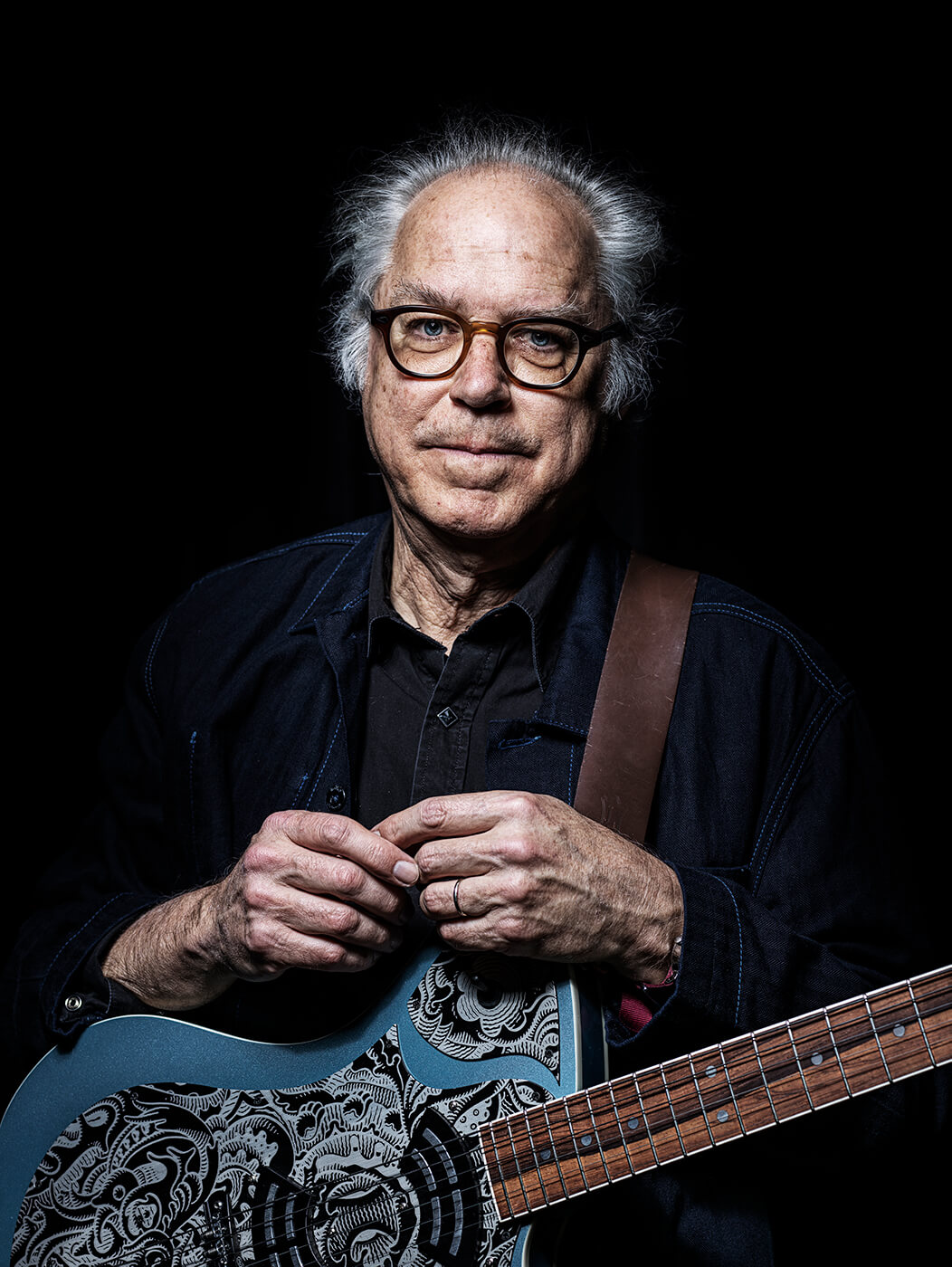
His tireless approach to guitar is all in pursuit of the next musical epiphany. “Any time I can get out of my comfort zone, it’s a good thing. It pushes you into some place you’ve never been. Whether it’s the same song, or with the same people, I think that’s the most exciting thing for a musician and the audience, too. If everyone is experiencing that, it’s an amazing thing,” he says.
Whether playing avant-garde jazz, folk music or working with film scores, Bill’s timbral elegance and lucidity always find room to shine through and elevate the recording. When it comes to advising the next generation of guitarists, however, his instruction couldn’t be more straightforward. “With the guitar, if you think about Robert Johnson and Jimi Hendrix and Wes Montgomery, they all played the same instrument tuned the same way! Just listen to them and others will follow.”
Epistrophy is out now on ECM Records. The Bill Frisell Trio play the Singapore International Festival Of Arts on 29 May 2019.
